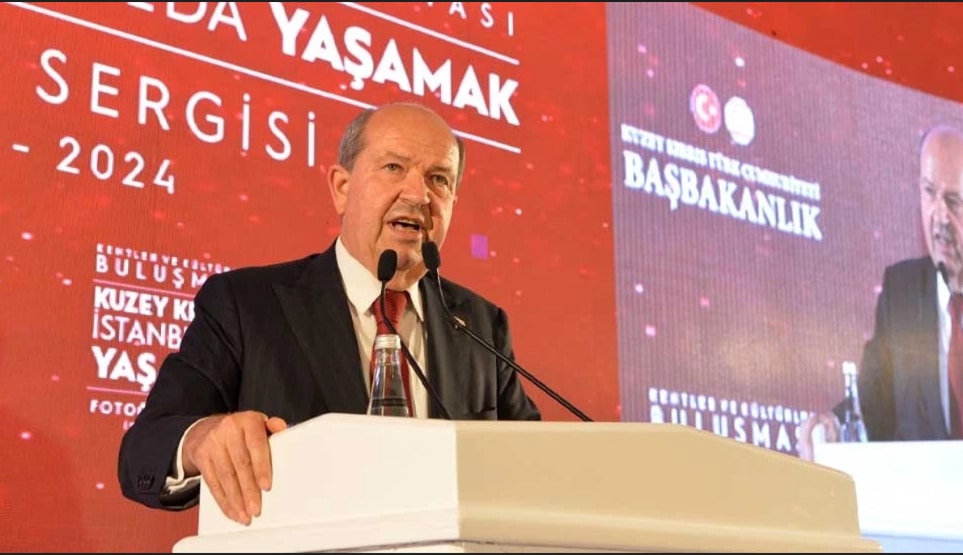Turkish Cypriot leader Ersin Tatar on Friday called on the Republic to use “common sense” regarding the Immovable Property Commission (IPC), accusing the Republic of intimidating Greek Cypriots to not claim compensation through it.
He said the Republic’s current stance towards the IPC has “revealed its true intention of pressure and intimidation”.
“On the one hand, the Greek Cypriot leader [Nikos Christodoulides], who makes statements aimed at impressing the international community, on the other hand continues to take steps to target our economy,” he said.
He pointed out that the IPC was recognised as an effective domestic legal mechanism by the European Court of Human Rights to evaluate claims to property in the north made by Greek Cypriots, and that it has been “working effectively” since 2005.
“Despite this, the Greek Cypriot leadership is trying to prevent its citizens from applying to this mechanism, and also does not give the necessary legal documents to those whom they cannot convince to not apply, to allow their cases to proceed,” he said.
In addition, he said it is a “clear violation of international law” for the Republic to “bring the issue to its own courts in a way that targets individuals”.
In this, he was referring to an ongoing case against Israeli businessman Simon Mistriel Aykut, who stands accused of developing Greek Cypriot land, and an earlier case against lawyer Akan Kursat, which was suspended indefinitely in February.
“These unacceptable trials of those who act in accordance with the property regime in accordance with international law and the European Convention on Human Rights in the TRNC further exacerbate the issue of mistrust between the two peoples in Cyprus,” he said.
“In this period when we, the Turkish Cypriot side, are constantly calling for cooperation, and the Greek Cypriot side is heightening its policy of intimidation, I invite them to use common sense.”
“My people have been oppressed under the tyranny of unjust and unlawful isolation for 61 years. The international community’s indifference to this cruelty, which violates my people’s fundamental rights, encourages the Greek Cypriots to target my people, going against international law,” he said.
He then called on the international community and the United Nations to “stop supporting this policy of isolation pursued by the Greek Cypriot leadership.”
Overt statements have not been made by the Republic about the IPC of late, but former President Nicos Anastasiades did go on the record in 2022 describing it as a “trap”.
He said areas of Varosha offered up for claims through the IPC by the north’s authorities were being “offered as bait” and went on to call the offer a “trojan horse”.
As of June 3, Greek Cypriots had received a total of £25.4 million (€29.8m) from the IPC so far this year. Decisions have been made regarding a total of 45 claims, the largest of which was worth £11m (€12.9m). In addition, four other cases concerned payments of more than £1m (€1.2m).
The IPC has awarded more than £446.2m (€523.7m) in compensation since its creation in 2005. It examines claims for compensation, as well as for restitution – the handing back of Greek Cypriot-owned property in the north – and exchange of land.







Click here to change your cookie preferences